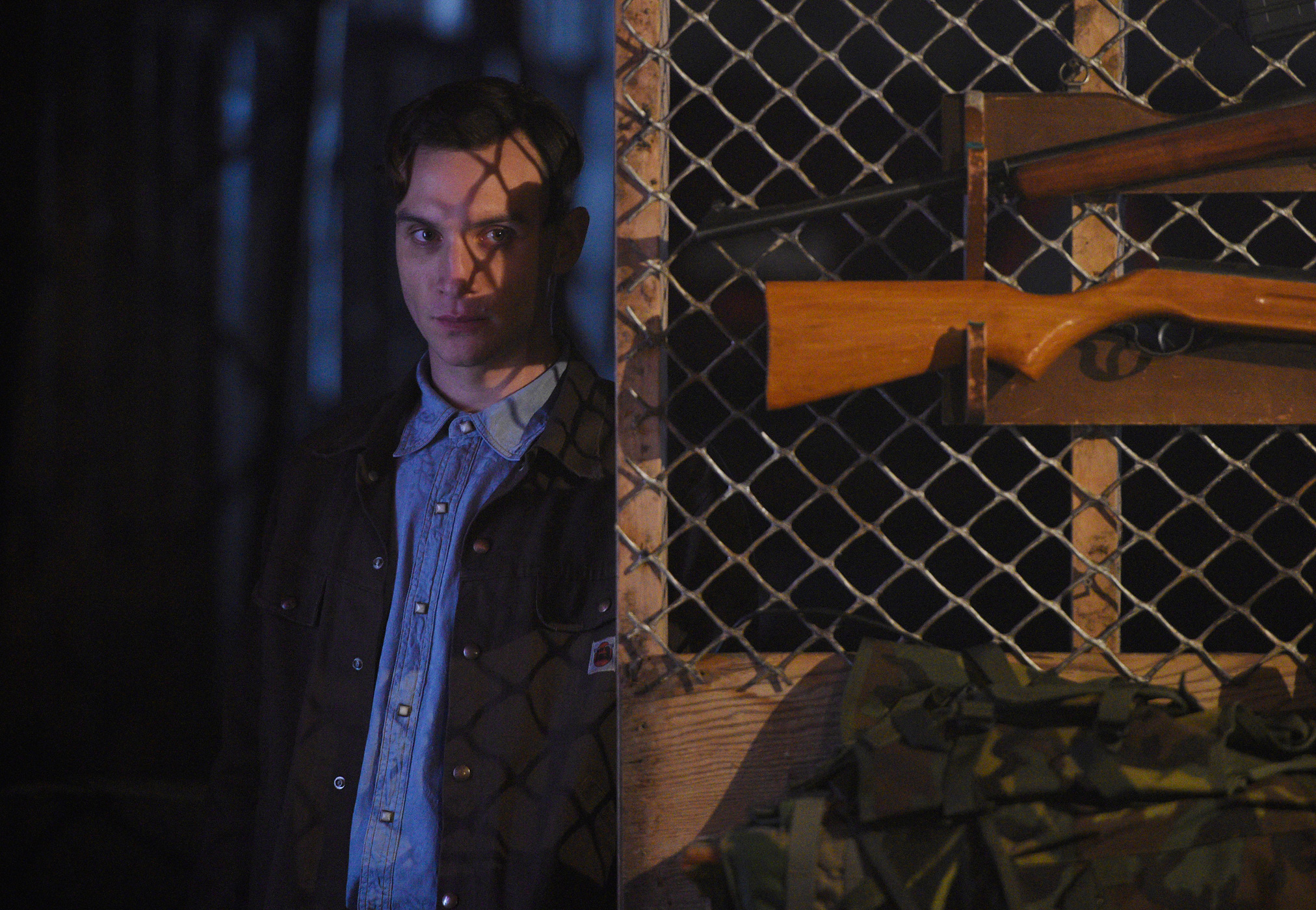
When Ari Millen signed on to play Mark, a clean-cut member of the extremist Prolethean religious sect on the electrifying sci fi show Orphan Black, he had no idea that by the end of Season Two he would be the face of a new line of militaristic male clones. “It wasn’t until two weeks before we shot the season finale of season two that they let me know,” Millen says. “It was a big surprise to me too!”
The surprise was made even bigger due to the fact that Millen had originally been told that his character was going to die. Instead, in the show’s third season, which launches April 18 on BBC America, Millen plays not only Mark, but also Rudy, an unbalanced soldier with a serious facial scar; Seth, a mustachioed piece of muscle; and Miller, a soldier with a prosthetic leg. And there could be even more characters bearing Millen’s face as the mysteries of the male clone program, Project Castor, are revealed.
For Millen, who previously had small roles on Rookie Blue, The CW’s Reign and SyFy’s 12 Monkeys, his one-season arc has transformed into what could potentially be the role of a lifetime. Getting your acting dream job means a lot of hard work, though. “To say it isn’t a challenge would be a lie, but it’s a fun challenge,” says Millen. “To get on a show and get to play one character is a successful moment in any actor’s career. To get to express yourself creatively in several ways on the same show is a dream.”
After producers told him that his role was going to be drastically expanded (or cloned, if you will), Millen had to figure out, logistically as well as artistically, how to make it work. “Luckily I had the whole off-season to formulate it in my head and figure out who these guys were,” he says. “I wasn’t thrown into the deep end right away.”
He’s also fortunate in that he’s walking a path trailblazed by Tatiana Maslany, who plays an evolving number of clones on the show with a seeming effortlessness. Millen seems poised to follow suit, thanks in part to Maslany’s guidance. “She’s one of the most supportive people you would ever want to be teamed up with,” says Millen. “For me, I do a lot of learning visually. So at the clone dance party, I went in and I watched her maneuver through some of the technical aspects. I saw how she moved from one character to the other and I got a little idea of how to do it. Through season three, whenever I got the chance I would just watch. If I saw something that I hadn’t thought of, I would try it out and see if it worked for me.”
Another difficult task facing Millen this season is that while Maslany’s clones run the gamut of personality types, Millen’s clones are all cut from a similar tightly-wound military cloth, making differentiating between them even more challenging. “The biggest challenge for me is, Project Castor grew up self aware. Because of that, they are a lot more similar than Project Leda. So I tried to find to find small little differences between the similarities,” says Millen. “Sometimes it was hard to switch between them, but luckily I had very patient screen partners, and if a scene came out too Rudy and I needed to make it more Mark, we would just do another take.”
In each scene, to determine how each of the clones he plays will interact with all the other clones he’s playing, Millen has to plan ahead. “Normally, I will approach a scene and think, ‘Okay, I’m this character and this where they want to go and this is what they want to get at.’ The huge challenge this season is planning both sides of the scene, making sure that both voices are heard, because when you shoot the scene, you can only do one character at a time. At the beginning, I would sometimes forget that in a few hours I would have to be on the other side, talking to myself,” says Millen. “I’ve had to learn to give and take with myself, which is really weird.”
Millen works with a body double, Nick Abraham, who stands in for him while he maps how he and his clones will act out a scene. “We would discuss the scene beforehand, run it with Nick, and run it again with the tennis balls,” says Millen. “That was really interesting. I don’t think you can prepare for acting, or reacting, to a tennis ball. It’s a really weird process.”
More Must-Reads from TIME
- Donald Trump Is TIME's 2024 Person of the Year
- Why We Chose Trump as Person of the Year
- Is Intermittent Fasting Good or Bad for You?
- The 100 Must-Read Books of 2024
- The 20 Best Christmas TV Episodes
- Column: If Optimism Feels Ridiculous Now, Try Hope
- The Future of Climate Action Is Trade Policy
- Merle Bombardieri Is Helping People Make the Baby Decision
Contact us at letters@time.com